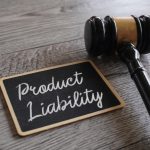Especially now at the time of the COVID-19 pandemic, many businesses have had to close their doors indefinitely at the outbreak of the virus. That has resulted in diminished profits, loss of income, and countless layoffs.
Borders are closed and there are limitations on which items can go in and out of the country. Supply chains are broken, vendors cannot collect their pay, and businesses cannot afford to pay off their debts.
So if you haven’t protected your business assets by now, it’s high time you did so. We had a talk with Bobby Gill, a successful entrepreneur who owns a Private Wealth Strategy firm in London, UK. He is someone who helps clients get a better grip on wealth management and wealth protection.
Let’s take a look at what he has to say, and see some of the best asset protection strategies to help you and your business stay afloat.
1. Take Umbrella Insurance
According to Bobby Gill, your first line of defense for asset protection is a strong insurance plan. As a business owner, there are several insurance types you should have:
Business Insurance
Business insurance is a broad term that can include liability insurance, property insurance, business interruption insurance, and more. It’s mostly designed to protect your business property and provide liability coverage in case of a lawsuit. It’s a must to have adequate business insurance regardless of the size of your business.
BAP
Business Automobile Policy (BAP) will cover business vehicles and provide additional liability coverage. The premium is significantly higher than most would expect, but it’s worth it in case of a lawsuit.
Umbrella Insurance
Most importantly, your business needs umbrella insurance. It provides coverage for everything that your other insurance policies have left out. It’s crucial if you want to avoid creditors seizing your assets and garnishing your wages when your remaining policies cannot cover settlements.
2. Protect Your Assets Through Business Entities
One major mistake that many business owners make is tying their business and personal assets in one big bundle. This makes all of your assets extremely vulnerable, and you risk losing everything in one fell swoop.
It’s crucial to make a distinction between your business and personal assets, and not just in a philosophical sense. Put it all on paper. The best way to do this is by creating a business entity.
Your options are:
- Limited Partnerships
- Corporations
- Limited Liability Companies
It’s crucial to make a distinction between your business and personal assets, and not just in a philosophical sense.
As their name would suggest, Limited Partnerships will help you limit your liability. You’ll be liable only for the investments you’ve made in the business, nothing more. Limited partnerships have their pros and cons, but they are one of the options for protecting business assets.
Corporations are mainly for protecting your personal assets in case of a business lawsuit. Your business assets will still be vulnerable, but at least you won’t risk losing everything you own.
Limited Liability Companies (LLCs) generally provide the best asset protection. They don’t have as many restrictions on ownership as S corporations, and they offer similar liability protection as C corporations.
3. Create an Asset Protection Trust
According to Bobby, regardless of COVID-19, the economy, or politics, having an asset protection trust is the best thing you can do for your business and future cash flow. With a well-thought-out asset protection trust, creditors won’t be able to touch your assets. Not to mention that any judgments or lawsuits will have little to no effect on your assets.
It’s important to note, however, that asset protection trusts are very complicated. You’ll need to consult your financial and wealth management advisors, as well as experienced attorneys.
With this in mind, you should know that there are two main types of asset protection trusts:
- Revocable
- Irrevocable
As you can easily conclude, a revocable trust can easily be changed or altered. As the settlor, you can retain full control over the trust’s assets and change the trust terms at will. Revocable trusts come with numerous benefits, but don’t offer full asset protection. In case of a lawsuit, you could still be forced to pay out of the trust assets to settle the creditor’s claim.
[ymal]
According to Bobby Gill, an irrevocable trust is much better for protecting your business assets. You cannot change the terms of an irrevocable trust, and you don’t have full control over the trust assets. It’s the trustee who gets control over those assets. Since the assets are in the trustee’s name, if a lawsuit against you is filed by a creditor, those assets won’t be taken into account for settlement.
Irrevocable trusts can be divided into two unique categories: domestic and foreign. Let’s take a closer look at both.
Domestic Asset Protection Trust
Most popular in the United States, Domestic Asset Protection Trust can be an excellent way to protect your business assets. Their only drawback is that the protection offered isn’t bulletproof as all assets are still under the domestic legal system. That could make the assets vulnerable in case of a lawsuit or claim filed by the creditor.
Foreign Asset Protection Trust
A much safer solution is creating a Foreign Asset Protection Trust. As the name would imply, your business assets would legally fall under foreign jurisdiction. That will keep them well protected against seizures in case of a lawsuit or claim.
However, foreign asset protection trust is exposed to political and economic risks of the chosen jurisdiction. It’s crucial to be careful and weigh all your options when creating a Foreign Asset Protection Trust.
4. Keep Your Goodwill
As a business owner, what will serve you the most in these trying times is your established goodwill. The coronavirus lockdown and related business closures are affecting everyone – your customers, your vendors, your landlords.
If you’ve established goodwill with them, make sure to maintain it. Don’t be negligent, fraudulent, or try to fool anyone. If your reputation is ruined at this time, it will have great repercussions for you and your business.
The Bottom Line
Regardless of the pandemic and lockdown, protecting your business assets is always important. Be smart and develop the best strategies for success. That is the only way to come out on top after COVID-19 has been dealt with. For more advice on wealth management and wealth protection, you can utilise wealth strategy advisors.








